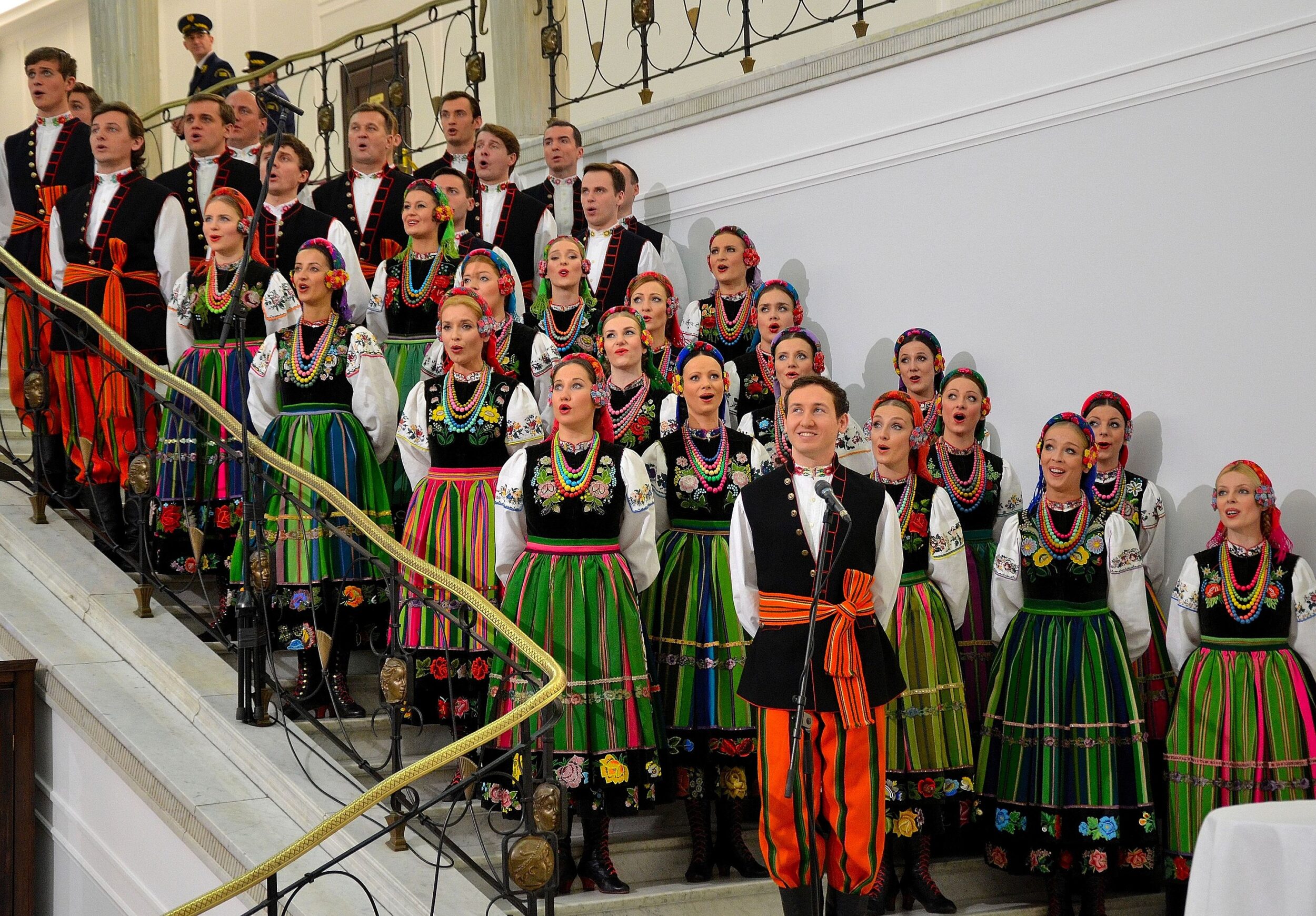When the opportunity to acquire dual citizenship presents itself, it can often feel like being handed a key that opens up a world of unlimited possibilities. For those fortunate enough to hold dual citizenship, the benefits can be life-changing – from broadening professional horizons to enhancing personal development.
It often begins with the discovery that grandparents are originally from Poland. Their curiosity is piqued when they learn that they can obtain Polish citizenship based on their ancestry. They’re eager to explore this possibility and set out to obtain dual citizenship.
The moment they receive their Polish passport marks the beginning of a whole new chapter in their lives. Not only does it give them the freedom to travel, work or study throughout the European Union without having to apply for a visa, but it also opens the door to a wealth of cultural experiences and personal development opportunities.
With their new status as dual citizens, they can now build a deep connection to their Polish heritage and immerse themselves in the country’s rich history, language and traditions.
So what are the benefits of Polish citizenship?
Obtaining Polish citizenship by descent can open up a world of opportunities for you and your family. Whether you take advantage of the freedom to work, travel or study throughout Europe, or enjoy the various social and economic benefits of EU membership, your Polish roots can truly change your life.
In this comprehensive guide, we’ll introduce you to the various benefits of Polish citizenship by descent and show you how to take advantage of these opportunities for yourself and future generations.
1. Polish citizenship is equivalent to EU citizenship
Countless people around the world are considering taking European citizenship because of the promise of a rich cultural experience, unparalleled access to education, and diverse professional opportunities. The European Union, with its strong economies, high standard of living and open borders, represents a world of unlimited opportunities and a brighter future for many people who want to broaden their horizons and enrich their lives.

As a Polish citizen, you’re automatically a citizen of the European Union. This means that you can live, work and study in any of the 27 EU countries, as well as Norway, Iceland and Liechtenstein, without the need for a visa or additional permits. Polish citizens can take advantage of the thriving labor market and educational opportunities throughout Europe and expand their professional and personal horizons. In addition, EU membership allows them to participate in EU decision-making processes and vote in European Parliament elections, helping to shape the future of the region. In essence, a second citizenship in the form of Polish citizenship opens up a world of opportunities and allows for an enriching and fulfilling life experience within the EU.
2. Polish passport means visa-free travel
For some people, the allure of hassle-free travel is the reason behind their desire to explore the world and create unforgettable memories. With visa restrictions and complicated travel regulations often a deterrent, the prospect of moving freely and effortlessly across international borders is a dream that motivates countless people to seek new opportunities and experiences.

A second passport, especially a Polish one, offers remarkable advantages to travel enthusiasts. Polish passport holders have visa-free access to over 180 countries worldwide. This benefit greatly simplifies travel planning, reduces the cost and time required to obtain visas, and allows for greater flexibility in exploring new destinations. As a member of the European Union, a Polish passport also allows for seamless travel within the Schengen area, allowing passport holders to move freely throughout 27 European countries without border controls. In summary, a second passport in the form of Polish citizenship opens up a world of travel opportunities and allows for new experiences and cultural discoveries that enrich the lives of its holders.
3. Polish citizenship opens a world of educational opportunities
There are also those who are intrigued by the idea of immersing themselves in the rich European educational landscape to broaden their horizons and improve their skills. With world-class institutions, diverse study programs and a wealth of cultural experiences, these individuals are drawn to the continent in search of academic excellence and personal development.

Polish citizenship opens a world of educational opportunities that can change lives. As a Polish citizen, you gain access to the European Union’s world-class educational institutions, including public universities in Poland that offer free education to their citizens. This benefit can significantly reduce the financial burden of higher education and makes it accessible to a larger number of students. In addition, Polish citizens are eligible for various scholarships, grants, and financial aid programs within the EU that open doors to prestigious universities and degree programs throughout Europe. The diverse educational landscape offered by a second citizenship such as Polish allows students to gain valuable international experience, broaden their perspectives, and develop important skills to succeed in today’s globalized job market.
4. Polish citizenship brings more affordable health care
For some people, a healthy and financially secure lifestyle is a top priority. They’re drawn to regions where a quality health care system is both accessible and affordable to ensure they can maintain their wellness without incurring crippling medical costs. These people often look for countries that offer comprehensive and cost-effective healthcare solutions that make them feel safe and have a better quality of life.

Polish citizenship is the gateway to affordable healthcare. Poland’s public healthcare system is known for providing quality healthcare at a fraction of the cost compared to many other countries. As a Polish citizen, you can access a variety of medical services, from preventive health care and specialist consultations to hospitalization and emergency treatment, without having to dig deep into your pockets. With the European Health Insurance Card, Polish citizens can also benefit from reduced or free health services when traveling within the European Union. This cost-effective healthcare system ensures that people with a second Polish citizenship can maintain their well-being and receive the care they need without facing financial difficulties.
5. With Polish citizenship you can invest in Europe
Many people love the excitement and challenge of investment plays, looking for opportunities in different markets and sectors to optimize their returns and minimize risks. These avid investors are constantly on the lookout for countries that offer attractive and lucrative investment opportunities. They know that diversifying their portfolio across international borders is an important strategy to achieve financial stability and growth.

A second citizenship, such as Polish citizenship, opens up lucrative investment opportunities that can contribute to financial growth and security. As a Polish citizen and member of the European Union, one can freely invest in a variety of sectors, from real estate and technology to finance and manufacturing. With its robust economy and strategic location, Poland offers a stable and attractive investment environment for local and international investors. In addition, Polish citizens are eligible for various EU funds, grants and financial incentives to promote entrepreneurship and regional development. With a second Polish citizenship, individuals can diversify their investment portfolio, tap into the thriving European market and benefit from the unique investment opportunities in Poland and beyond.
6. Unique sense of belonging and identity that transcends boundaries
For many people, the desire to build a deep cultural connection is at the heart of their aspirations. They want to explore their heritage, learn about different customs, and immerse themselves in the richness of various traditions. These people are often driven by a passion to understand the world and its myriad cultures, and a longing to create a unique sense of identity and belonging that transcends geographical boundaries.

A second citizenship, like Polish, fosters a deep sense of cultural connection and enrichment that can have a positive impact on personal development and identity. By embracing their Polish heritage, they’re able to immerse themselves in Poland’s rich history, language, and traditions and build a strong bond with their ancestors. This cultural connection allows them to better understand and appreciate the unique customs, arts, and values that have shaped Polish society for generations. In addition, being a Polish citizen allows one to participate in local events, festivals and celebrations, which further strengthens the bond with the country and its people. Possessing a second Polish citizenship not only broadens one’s cultural horizons, but also creates a unique sense of belonging and identity that transcends borders.
Benefits of Polish citizenship
In summary, the advantages of Polish citizenship go far beyond the well-known benefits of EU membership and visa-free travel. By adopting a Polish passport, individuals open up a world of opportunities in terms of education, career prospects, investment opportunities, and healthcare, while deepening their cultural ties and broadening their horizons.
For those with Polish ancestry or a genuine interest in Poland’s rich heritage, acquiring Polish citizenship can be a transformative experience that opens doors to a more fulfilling and diverse life. By discovering the lesser-known benefits and engaging with the country’s unique offerings, Polish citizens can fully immerse themselves in Poland’s vibrant history and culture and forge lasting bonds that transcend generations and borders.
As the world grows ever closer, the importance of multiple citizenships cannot be overstated. Polish citizenship, in particular, offers a multitude of benefits that can greatly enhance personal and professional lives and provide the tools and resources necessary to succeed in today’s global world. With so many benefits, it’s no wonder that more and more people are discovering the incredible value and potential of Polish citizenship for themselves.
Would you like to check if you qualify for Polish citizenship? Find out if you are eligible for Polish citizenship by taking the test below:
